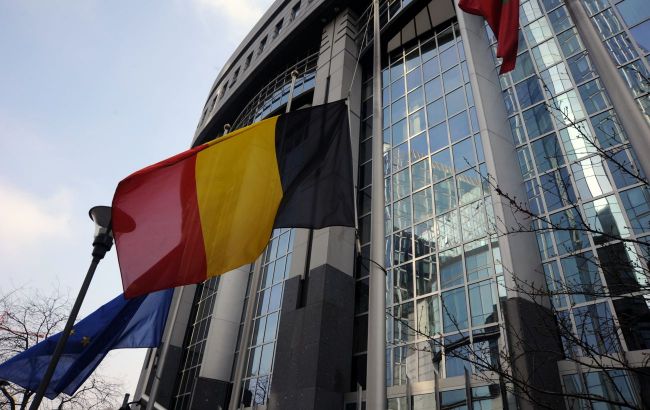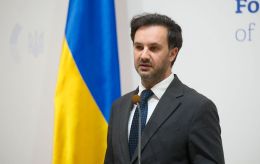EU claims Belgium is keeping income from Russian assets, Politico says
 Illustrative photo: Belgium's opposition causes disappointment and suspicion in the EU (Getty Images)
Illustrative photo: Belgium's opposition causes disappointment and suspicion in the EU (Getty Images)
Belgium's resistance to transferring Russia's frozen assets to Ukraine may have more practical motives than the official concern of fear of retaliation from Moscow. The EU is beginning to suspect that Belgium is pocketing revenue from these assets, according to Politico.
EU countries are extremely frustrated with Belgium's position, which is blocking a decision on a "reparations loan" for Ukraine using Russia's frozen assets. Officially, the Belgian government says it fears Belgium "will be blamed" if the Kremlin manages to recover the assets.
However, five sources from diplomatic circles in different EU countries told the outlet that the real reason for Belgium's resistance is that it is retaining Russian assets in order to continue adding taxes from them to its national budget. In doing so, Belgium is violating an international commitment it made last year.
Where did the money go?
Diplomats claim that Belgium is allocating taxes from these assets to its national budget — effectively keeping the money for itself. This concerns a 25% corporate tax applied to Russian assets frozen in Belgium's Euroclear depository.
As a result, the country is not fully meeting its obligations to Kyiv and the EU as it should. It is potentially assumed that this is an attempt to appropriate at least part of the revenue from Russia's assets.
If Belgium continues to resist the transfer of assets, EU member states may begin raising the issue of possible revenue appropriation from Russian assets directly at meetings ahead of the European Council summit, the sources suggested.
EU countries are focused on two questions — whether Belgium is actually pocketing the income and whether it is passing these taxes from the assets on to Ukraine. This could potentially trigger a serious scandal.
"In light of this ongoing foot-dragging behavior, one wonders whether it has actually been understood that it's Europe's security which is at stake here... And in view of the data, there are doubts as to whether Belgium is delivering on its promise to sent its windfall tax gains to Ukraine," a senior European diplomat told the outlet.
In their assessments, EU diplomats rely on figures from independent sources, including the Kiel Institute. The institute estimated that Belgium's transfer of Russian revenue to Ukraine, along with its financial assistance to the country, amounted to 3.44 billion euros from February 24, 2022, to August 31, 2025. Of this, Belgium earned 1.7 billion euros in 2024 alone from taxes on Russia’s frozen assets.
Tensions are further fueled by transparency issues that have existed since 2024. At that time, Belgium's allies accused the country of using income from Russian revenue to fund its own budget.
In response, the Belgian government announced it would transfer revenue from the assets to an EU and G7 financial instrument to benefit Ukraine. However, the government later quietly decided to "forget" this promise, leaving the situation unchanged.
Belgium denies accusations
The Belgian government has rejected criticism from diplomats, asserting that all taxes from Russia's frozen assets are being transferred to Ukraine. However, it continues to avoid directly answering whether all the money has actually been sent.
Additionally, Belgium claims that since 2022 it has provided Ukraine with roughly one billion euros in direct support from its national budget.
"The Belgian government has committed to allocating all corporate tax revenue from the interest income on Russia's immobilized assets at Euroclear to support Ukraine… For 2025, this revenue is currently estimated at around €1 billion… In addition to the full use of the corporate tax on the windfall profits, which is fully used for military support to Ukraine, the Belgian federal government has provided since 2022 roughly just under 1 billion euros in military and other support to Ukraine," said a Belgian government official.
At the same time, the Belgian government ignores questions about why it has not fulfilled its earlier promise to transfer tax revenues from the assets to an EU and G7 financial instrument for Ukraine. The Belgian government had publicly pledged to do this back in 2024.
"The tax revenue was already part of their domestic budget, and they didn't want to give it up," another senior EU diplomat commented on the situation.
Seizing Russian assets: latest developments
On November 28, it became known that Belgian Prime Minister Bart De Wever again stated that the EU's plan to use Russia's frozen assets to fund Ukraine could supposedly have serious economic and geopolitical consequences.
Meanwhile, on November 27, it was reported that Valerie Urbain, CEO of Belgium's Euroclear depository — which holds the majority of Russia’s frozen assets — sent a letter to European Commission President Ursula von der Leyen and European Council President António Costa. She justified her resistance to confiscating Russian funds by claiming fear of a potential Kremlin response.
Belgium’s intensified actions were prompted after von der Leyen announced on November 26 that the European Union will soon present a legislative proposal allowing the use of Russia’s frozen assets to provide Ukraine with a 140 billion euro reparations loan.
This could potentially bypass Belgium's blockage. Consequently, Belgium would have to part with Russia's frozen assets, which currently generate taxes and profits.

